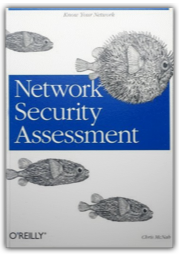
There are hundreds—if not thousands—of techniques used to compromise both Windows and Unix-based systems. Malicious code and new exploit scripts are released on a daily basis, and each evolution becomes more and more sophisticated. Keeping up with the myriad of systems used by hackers in the wild is a formidable task, and scrambling to patch each potential vulnerability or address each new attack one-by-one is a bit like emptying the Atlantic with paper cup. If you're a network administrator, the pressure is on you to defend your systems from attack. But short of devoting your life to becoming a security expert, what can you do to ensure the safety of your mission critical systems? Where do you start? Using the steps laid out by professional security analysts and consultants to identify and assess risks, Network Security Assessmentoffers an efficient testing model that an administrator can adopt, refine, and reuse to create proactive defensive strategies to protect their systems from the threats that are out there, as well as those still being developed. This thorough and insightful guide covers offensive technologies by grouping and analyzing them at a higher level—from both an offensive and defensive standpoint—helping administrators design and deploy networks that are immune to offensive exploits, tools, and scripts. Network administrators who need to develop and implement a security assessment program will find everything they're looking for—a proven, expert-tested methodology on which to base their own comprehensive program—in this time-saving new book. 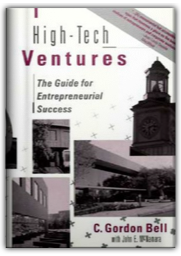
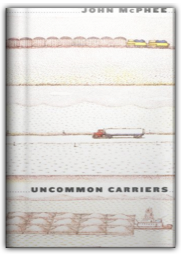
What John McPhee's books all have in common is that they are about real people in real places. Here, at his adventurous best, he is out and about with people who work in freight transportation. 
This bestselling book is now the standard guide to building phone systems with Asterisk, the open source IP PBX that has traditional telephony providers running scared! Revised for the 1.4 release of the software, the new edition of Asterisk: The Future of Telephony reveals how you can save money on equipment and support, and finally be in control of your telephone system. If you've worked with telephony in the past, you're familiar with the problem: expensive and inflexible systems that are tuned to the vendor's needs, not yours. Asterisk isn't just a candle in the darkness, it's a whole fireworks show. Because Asterisk is so powerful, configuring it can seem tricky and difficult. This book steps you through the process of installing, configuring, and integrating Asterisk with your existing phone system. You'll learn how to write dialplans, set up applications including speech synthesis and voice recognition, how to script Asterisk, and much more — everything you need to design a simple but complete system with little or no Asterisk experience, and no more than rudimentary telecommunications knowledge. The book includes: A new chapter on managing/administering your Asterisk system A new chapter on using Asterisk with databases Coverage of features in Asterisk 1.4 A new appendix on dialplan functions A simplified installation chapter New simplified SIP configuration, including examples for several popular SIP clients (soft phones and IP telephones) Revised chapters and appendicies reviewed and updated for the latest in features, applications, trends and best-practices Asterisk is revolutionizing the telecom industry, due in large part to the way it gets along with other networkapplications. While other PBXs are fighting their inevitable absorption into the network, Asterisk embraces it. If you need to take control of your telephony systems, move to Asterisk and see what the future of telecommunications looks like. |

When Transforming Words Into Print Becomes a Passion 
If past is prologue, then The Metaphysical Clubby Louis Menand may suggest an intellectual course for the United States in the 21st century. At least Menand, a frequent contributor to The New Yorkerand The New York Review of Books, thinks so. This enthralling study of Oliver Wendell Holmes, William James, Charles Sanders Peirce, and John Dewey shows how these four men developed a philosophy of pragmatism following the Civil War, a period Menand likens to post-cold-war times. Together, "they were more responsible than any other group for moving American thought into the modern world." 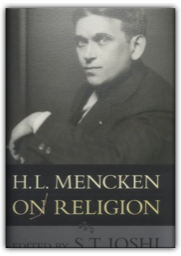
No one ever argued more forcefully or with such acerbic wit against the foolish aspects of religion as H.L. Mencken. As a journalist, he gained national prominence through his newspaper columns describing the famous 1925 Scopes trial, which pitted religious fundamentalists against a public school teacher who dared to teach evolution. But both before and after the Scopes trial, Mencken spent much of his career as a columnist and book reviewer lampooning the ignorant piety of gullible Americans. 
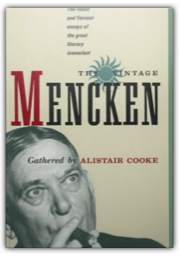
The anthology that spans an entire lifetime of writing by America's greatest curmudgeon, with a "flick of mischief on nearly every page." |

My Library
Collection Total:
1165 Items
1165 Items
Last Updated:
Sep 9, 2009
Sep 9, 2009


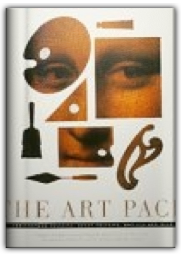
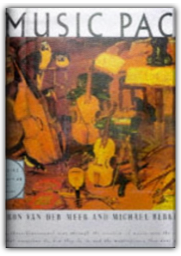
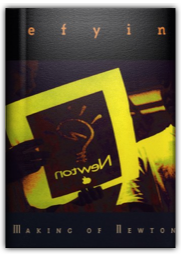

 Made with Delicious Library
Made with Delicious Library